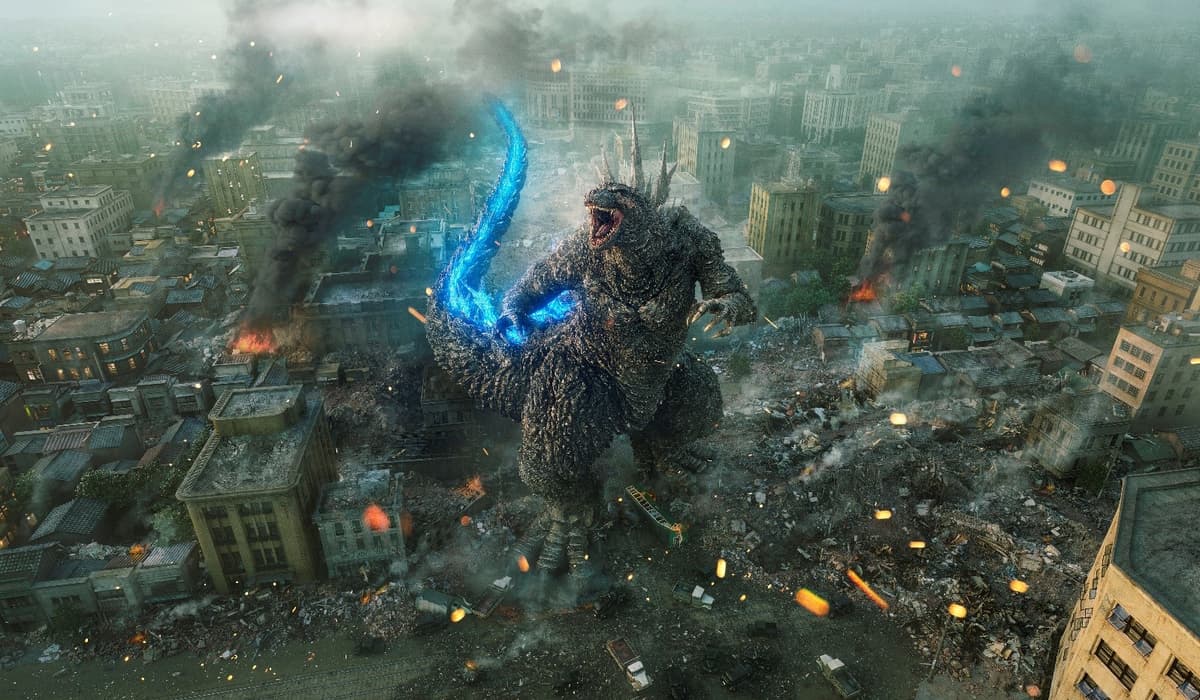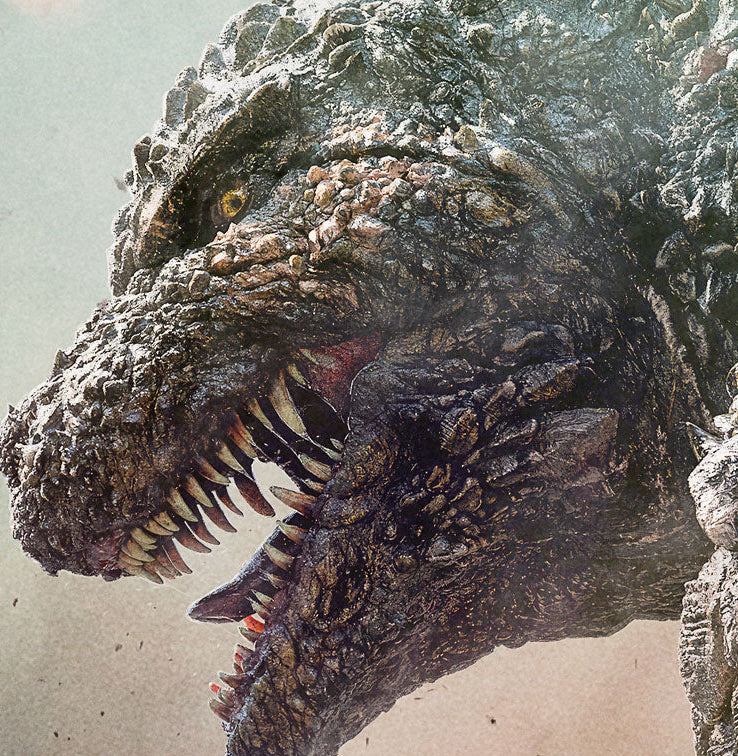Godzilla Gets His Groove Back
The king of the monsters, in what could be the year’s best movie, celebrates his 70th birthday in what, for a 390-foot tall dragon, passes for style.

The crowd assembled at the Japan Society for an early screening of “Godzilla Minus One” did not need to be told why they were convened a stone’s throw from the East River, but the society’s director of film, Peter Kitara, took the stage to remind them that they were there “for the king of the monsters.” They wanted him, they got him, and he’s hungry for more.
“Godzilla” stomps to these shores leaving a trail of Far Eastern glory. Released on the franchise’s 70th anniversary by the Toho Company, the movie closed the Tokyo International Film Festival and has left critics feting this iteration of the monster, written and directed by Takashi Yamazaki, as a masterpiece. At a juncture when Marvel’s reign appears to be fraying, and the movies could use a hero, here comes the septuagenarian scaly beast of the deep.
The movie begins at Ondo Island, in the closing days of World War II. A kamikaze pilot, Kōichi Shikishima, played by Ryunosuke Kamiki, loses his nerve and tumbles from the sky, and, before long, a serpentine Godzilla climbs out of the water and lays waste to everyone in sight. We see Godzilla from the ground up and the sky down, a thrilling disorientation that feels like going on a roller coaster with a dragon. Shikishima again survives, cheating death.
The film then leaves Godzilla aside for an interlude to paint a picture of a devastated Tokyo in the days after the war’s end. Think a barter economy and shanty towns, a Pacific power brought to its knees, its pride a wounded and feral sentiment. Shikishima is ashamed for having lived when his duty was to die. He meets Noriko Ōishi, played by Minami Hamabe, and her young daughter. Three orphans, they form a patchwork family.

Godzilla, though, is soon back, and his devastations return Japan to the horrors of war just as it is eyeing reconstruction. The movie delivers a surprisingly searing account of men broken but unbowed by war, tenaciously clinging to a code of honor — still saluting and deeply bowing — that is all the more poignant for the undercurrent of rage at how Hirohito and Tojo led Japan to ruin. To be a kamikaze who lived is to double as a metaphor for the country.
Enough of the humans. This Godzilla is, suitably for an island nation, more comfortable in the water, where his spiky fins deliver the invariably bad news of his approach. On land, he is halting and dead-eyed, with thighs so large they appear to exert their own gravitational pull. A scene where he lays waste to a section of Tokyo could be the best in film this year — campy, compelling, and convincing. Japan undergoes a déjà vu apocalypse.
The point is carved into relief by Godzilla’s ability to emit a “heat ray,” which he does to devastating effect. The effect is equivalent to an atomic bomb, with a mushroom cloud and accompanying radiation. The dropping of the bombs at Hiroshima and Nagasaki is not mentioned in the movie, meaning that Godzilla’s attack stands in for those detonations. It is a bold allegory and a surprisingly poignant one.
Godzilla is Japan’s tormentor but also its alter ego, its footprint an imprint of the country’s expansionist folly. In battling Godzilla, Shikishima and his band of brothers repeat to each other the mantra that “the war isn’t over” and that it might never be. The kamikaze pilot is once again called to render his delayed sacrifice, as if Godzilla is keeping score, roaring a settling of accounts not with the American conquerors but with the Japanese survivors.
There is something of the American director Steven Spielberg’s sensibility in “Godzilla.” Cinematic influence is a labile thing, but this movie appears to study his practice of stitching soul into science fiction extravaganzas. One wonders if a DNA test could link Godzilla to the Tyrannosaurus Rex from “Jurassic Park,” and Shikishima to the whole host of Mr. Spielberg’s earnest heroes trying to do right in a world of monsters and men.

